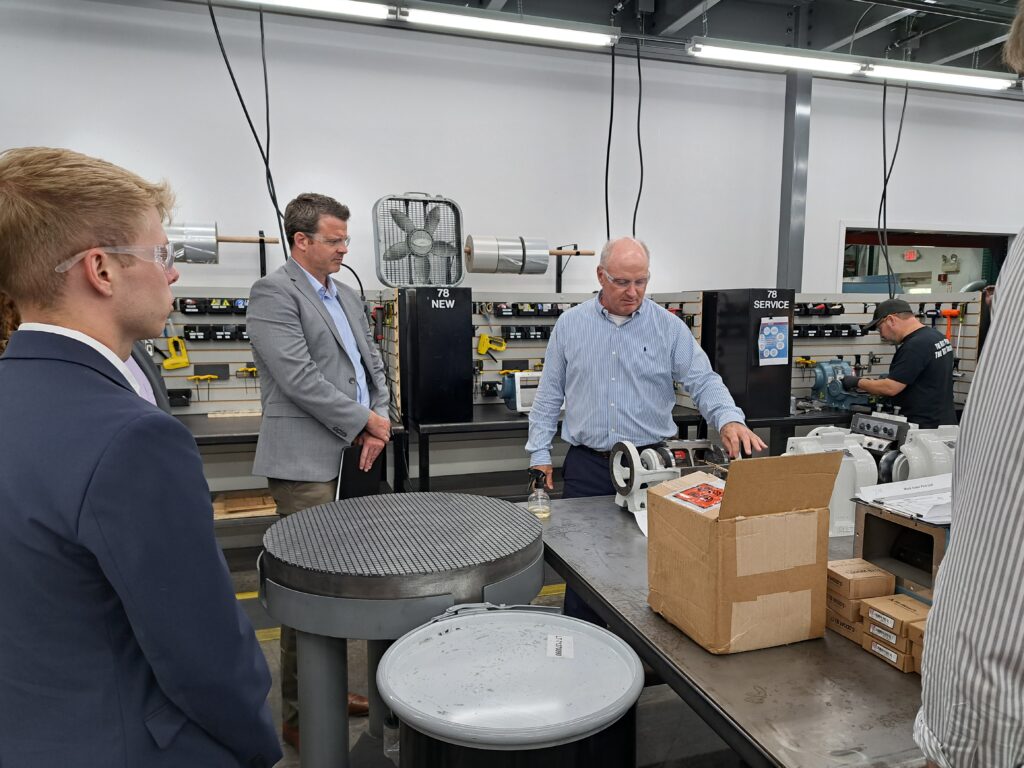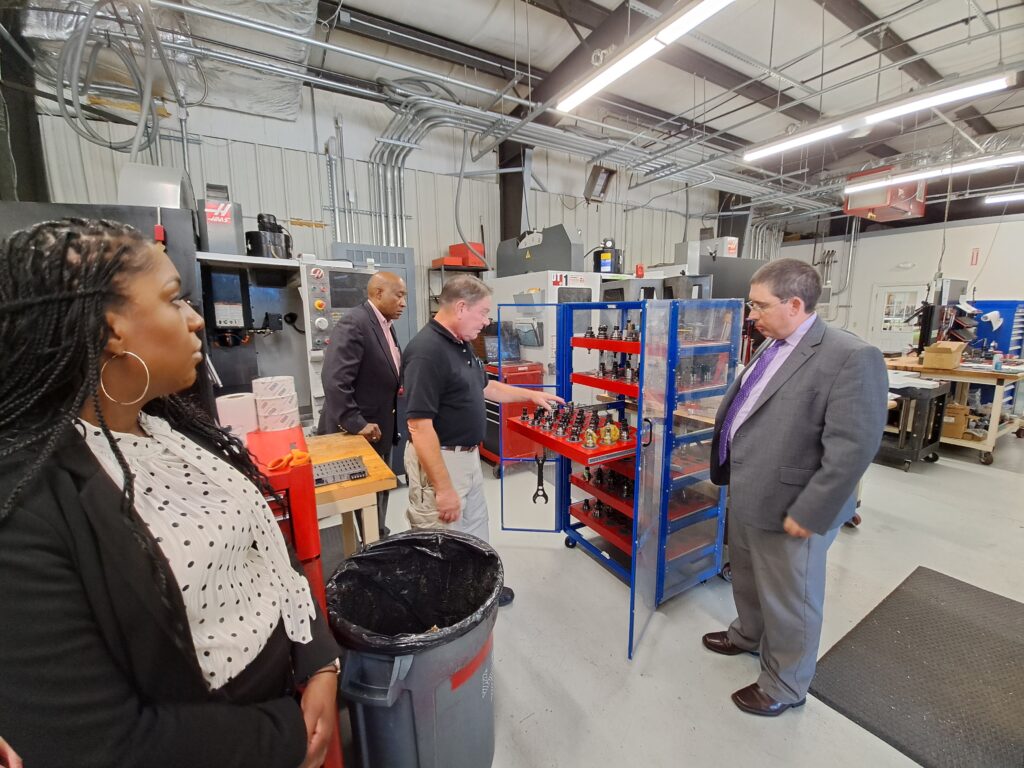by David Tokarz
During Advocacy’s recent retreat, a team of attorneys went to visit a pair of manufacturers in Newark, DE, to better understand the challenges and opportunities small businesses face in today’s business climate. Advocacy attorneys met with John Coates, Chief Operating Officer of Precision Air Control and Steve Hague, owner of PolarStar Engineering & Machine. Both shared their regulatory concerns with Advocacy staff.
Precision Air Control is the largest business in a niche industry. The company specializes in production waste disposal through vacuum systems. As Coates explained, companies that create products like packing tape need waste removal solutions that allow them to continue production while removing debris from machinery. Precision Air Control’s vacuum systems are also flexible enough to be used in hospitals, to coordinate disposal of waste across a large building.

Precision Air Control’s systems position themselves as a small business that can benefit from changes in federal regulation. When Proctor and Gamble approached his company about a waste disposal system, Coates explained, they did so because they were legally required to separate the waste byproducts produced when making baby diapers. Other companies come to Precision Air Control to improve efficiency by easing the process of waste recycling.
Precision Air Control is an example of how regulatory changes can lead to opportunities for small businesses to help larger companies better comply with a changing landscape. As Advocacy continues to work with federal regulators on behalf of small businesses, our relationship with companies like Precision Air Control can assist us in seeing how regulations can benefit small businesses.
However, there are often costs associated with increased regulatory burdens. Steve Hague, owner of PolarStar Engineering & Machine, talked about how his machine shop added an air conditioning unit after experiencing massive temperature hikes in 2022. While not legally required at the time, Hague made it clear that it was the right thing to do by his employees. The AC units also allowed for more efficiency in PolarStar’s machine shop, so there were benefits across the board.
While this positioned PolarStar well when OSHA came out with its proposed heat rule this year, there were still hurdles in compliance. Although Coates provided heat relief for his 14 employees, he will likely need to document it in order to comply with the rule. Indeed, the paperwork burden was an important theme in our conversation, as Hague noted with pride that PolarStar was ahead of the curve on recycling waste byproducts. Despite this, however, it was often difficult to know when a regulation would impact the business and how they could prove they were complying.

As Deputy Chief Counsel Major Clark noted at a small business roundtable on August 21, confusing regulations often harm even well-meaning small businesses like PolarStar. “Some businesses attempt to comply with a proposed rule, spending thousands of dollars on equipment or staff,” said Clark. “The risk is that a final rule could invalidate all that work if an agency decides to change the proposed rule in a way that is not adequately communicated to small businesses.”
Regulatory flexibility is key for America’s 34 million small businesses. Even when changing rules can present opportunities for some, others may be impacted by complex rules that they do not understand. This shifting landscape makes Advocacy’s work with federal agencies on small business regulation critical.
